Solar
Daniel E. Chartock
Energy Storage
Emerson
Solar
Garth Schultz and Mark Cerasuolo
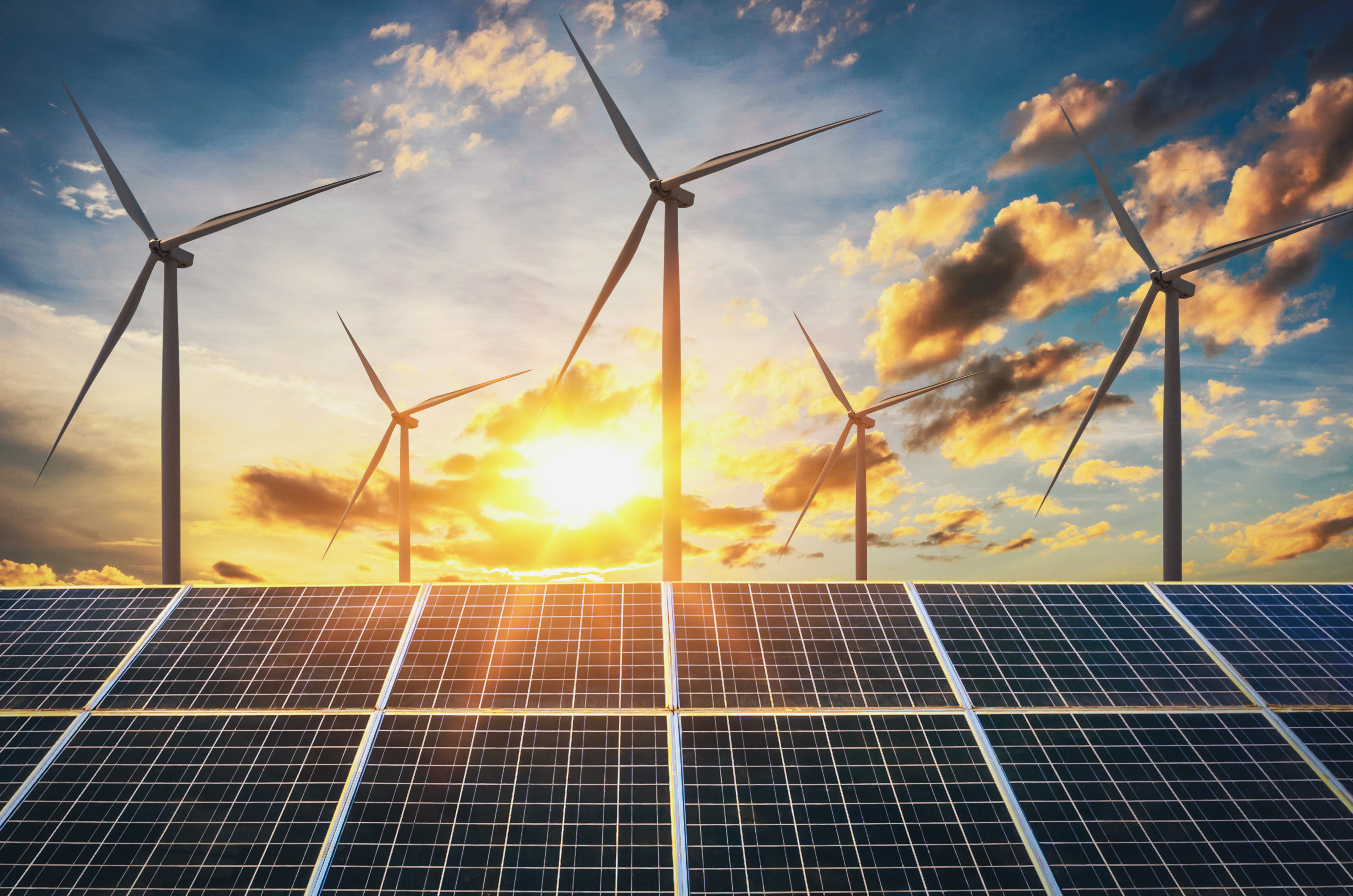
Purelight Power, one of the nation's fastest-growing solar installation companies, announced its expansion into the residential solar battery market with the Tesla PowerWall and Franklin aPower2. The move underscores the company's commitment to delivering reliable, clean energy solutions amid growing power outage concerns and rising utility costs.
Battery storage systems empower homeowners to store energy generated by their solar panels for use during peak hours or power outages. By reducing reliance on the grid, battery storage systems can help lower monthly electricity bills and provide peace of mind when extreme weather or utility failures occur.
"Batteries are an important part of our commitment to making America energy-independent," said Dean Muse, Purelight's Director of New Business Development. "Solar batteries give people more options and reliable access to power, even in extreme weather. We hear so many stories about multi-day power outages and America's aging utility grid. Typically, when you need a battery, it's already too late. We're determined to help our customers prepare for those worst-case scenarios."
Purelight Power has amassed thousands of 5-star reviews and consistently ranks as a top solar installer in multiple states. The company's expansion into solar battery installations follows its recent entry into the roofing industry, demonstrating its dedication to comprehensive home energy and improvement solutions.
Purelight Power | https://purelightpower.com/
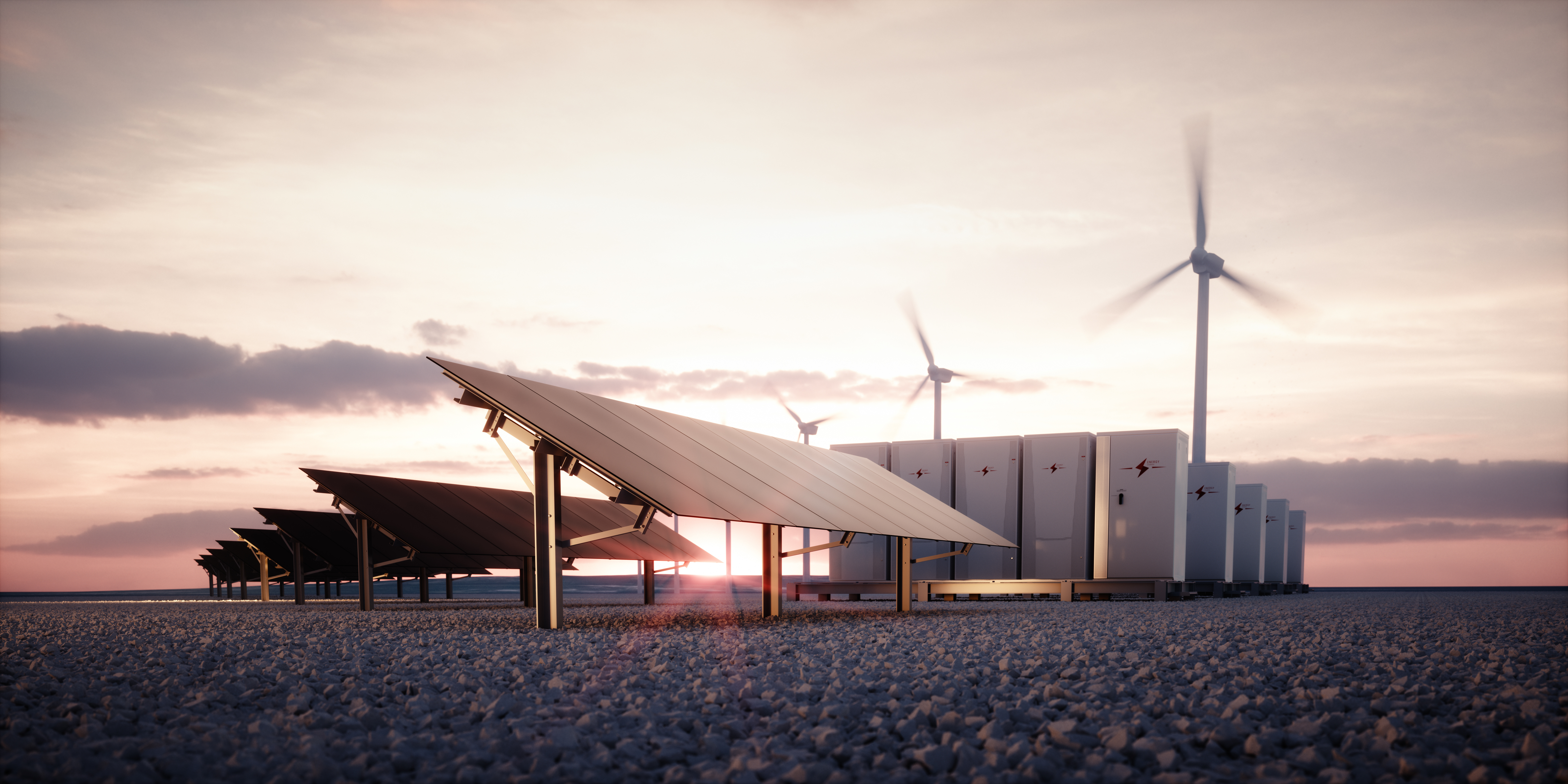
U.S. Senator Alex Padilla (D-Calif.) announced that the U.S. Department of Transportation will award $122.9 million for six California projects to build zero-emission vehicle charging and fueling infrastructure, including over $55 million for medium- and heavy-duty zero-emission vehicles. The funding comes through the Federal Highway Administration’s Charging and Fueling Infrastructure Grant Program, which was created by the Bipartisan Infrastructure Law.
The Charging and Fueling Infrastructure Grant Program aims to strategically deploy electric vehicle (EV) charging infrastructure and other alternative fueling infrastructure projects in publicly accessible locations in urban and rural communities, including downtown areas and local neighborhoods.
The California Energy Commission will receive nearly $55.9 million to install 21 public charging stations and one hydrogen refueling station to support zero-emission medium- and heavy-duty semi-trailer trucks. The project will deploy at least 130 high-powered zero-emission vehicle charger ports across the heavily trafficked routes within California and between California and Nevada, supporting zero-emission freight transportation. Senator Padilla led a letter with 36 of his colleagues in the California congressional delegation in support of the California Energy Commission’s application.
“Reducing emissions from our transportation sector is a key component in reaching California’s ambitious climate and clean air goals,” said Senator Padilla. “But to facilitate the zero-emissions transition, we must rapidly deploy charging and clean-fueling infrastructure to keep our supply chain moving and improve the daily commute for millions of Californians. Thanks to the Bipartisan Infrastructure Law, these investments will decarbonize our freight sector, protect public health, and help low-income communities save on their energy costs.”
Additional California recipients include:
Senator Padilla has consistently fought for emissions reductions across the transportation and freight sectors. Last year, Padilla successfully pushed the Administration to launch a National Zero-Emission Freight Corridor Strategy to guide the national deployment of zero-emission medium- and heavy-duty freight transportation vehicle (ZE-MHDV) charging and fueling infrastructure, which followed his efforts to call on the Joint Office to prioritize the deployment of ZE-MHDV as part of its core mission.
Last year, Senator Padilla announced over $318 million in two rounds of funding from the Charging and Fueling Infrastructure Grant Program. In 2023, Padilla, Senator Cory Booker (D-N.J.), and Representative Nanette Díaz Barragán (D-Calif.-44) introduced the bicameral EVs for All Act, legislation that would increase access to EVs for residents of public housing across the nation. Padilla and Representative Mark DeSaulnier (D-Calif.-10) also previously sent a letter urging the U.S. Department of Transportation and Federal Highway Administration to prioritize investments from the Bipartisan Infrastructure Law in clean charging and fueling projects to help reduce carbon emissions and improve air quality in the most impacted communities.
U.S. Senator Alex Padilla | https://www.padilla.senate.gov/
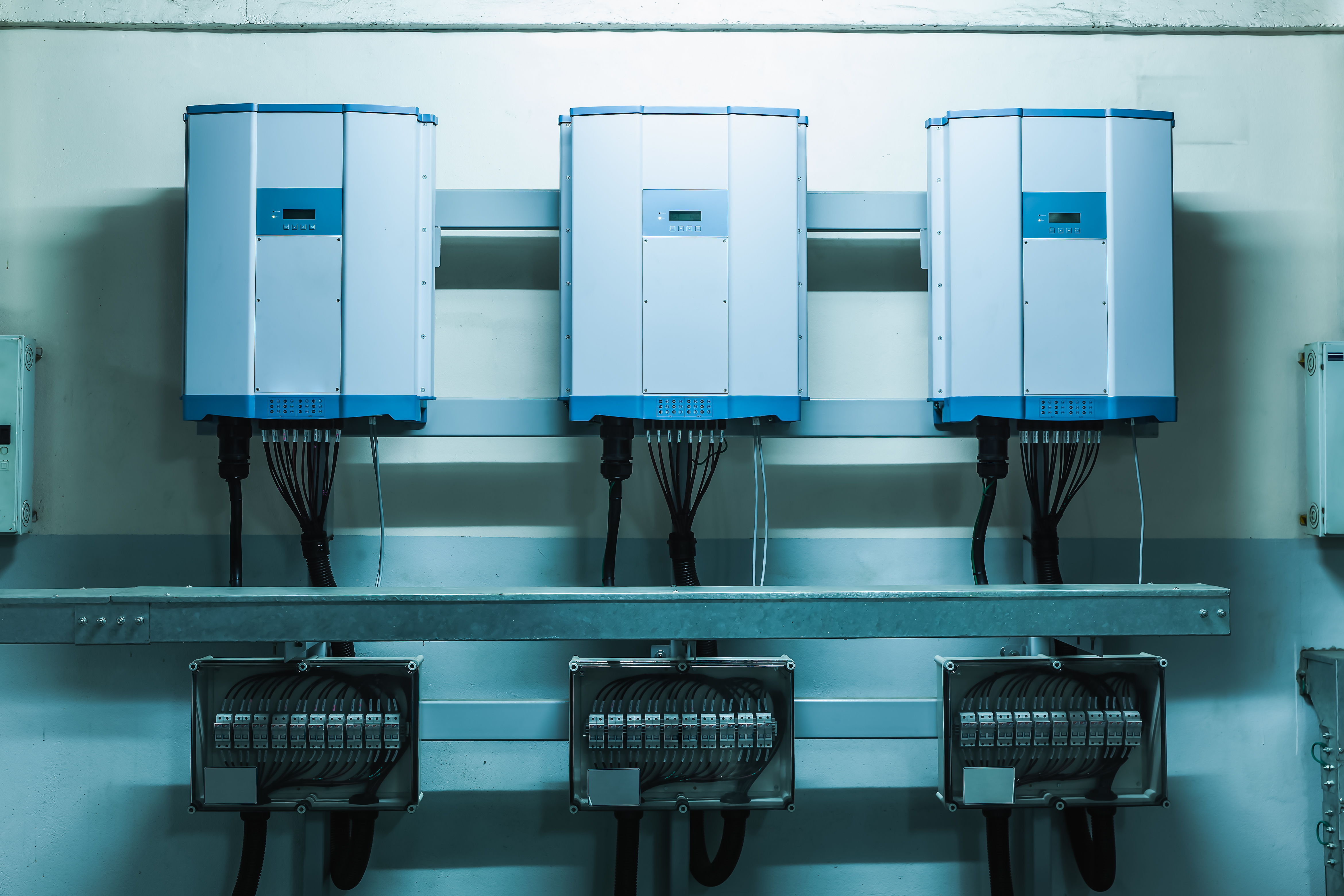
Sineng Electric is proud to announce the successful commissioning of a 6MW/24MWh grid-forming energy storage project in Tibet, China, situated at an average altitude exceeding 4,500 meters. To address the project's challenging conditions, including high-altitude derating and a requirement for up to three times overloading capacity, Sineng Electric provides a tailored grid-forming energy storage solution. The installation includes three units of Sineng 6.4MW central PCS MV turnkey stations, specifically engineered to optimize performance in such a demanding environment.
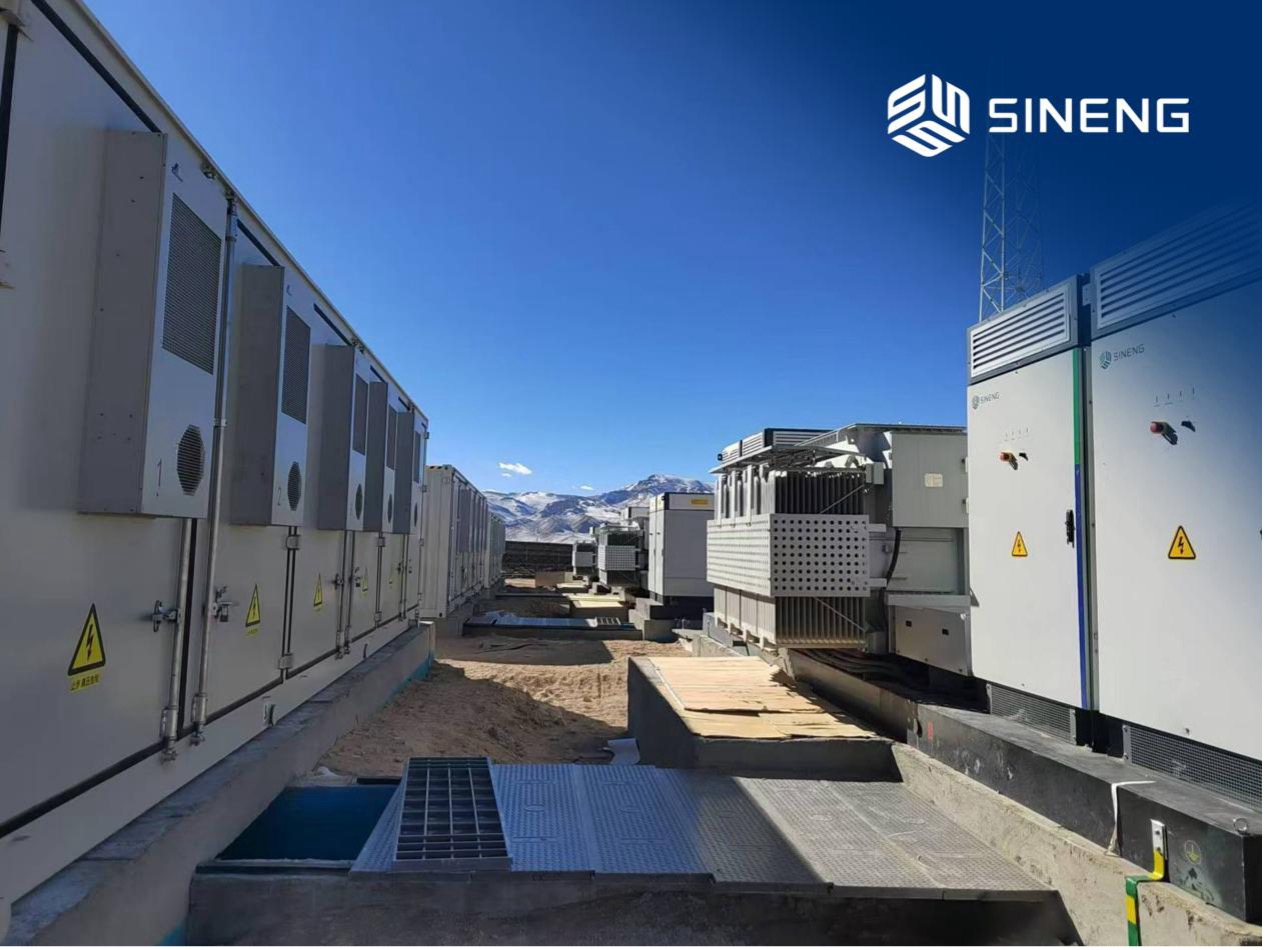
As an expansion of the 30MWp solar PV power plant, the energy storage project plays a pivotal role in enhancing the integration of solar energy into the local grid. In addition, it strengthens the resilience of the regional power infrastructure, providing a stable and reliable energy supply for the area's residents.
During the delivery and commissioning phases, the Sineng team navigated one of the coldest periods of the year in Ngari Prefecture, where heavy snow and rugged mountain terrain posed significant logistical challenges. Despite these harsh conditions, the Sineng team demonstrated exceptional expertise and perseverance, successfully completing the commissioning and system testing, which received high praise from the customer.
This energy storage facility deploys Sineng 6.4MW grid-forming central PCS MV turnkey stations, configured with four 1.6MW central PCS units. These units incorporate VSG technology, along with an advanced control algorithm featuring virtual excitation voltage, virtual impedance/power angle, and inertia damping. The cutting-edge technology offers significant improvements in control logic, response time, and system robustness under grid disturbances.
Sineng Electric continues to lead the way in energy storage technology, with its solutions supporting multiple operational modes, including grid-following, grid-forming, and grid-off configurations. This versatility makes Sineng Electric’s PCS solutions adaptable to a wide range of applications. As the energy landscape continues to evolve, Sineng Electric remains committed to advancing innovation and promoting sustainable energy solutions across the globe.
Sineng Electric | https://en.si-neng.com/

A landmark six-year study conducted by Natural Resource Solutions Inc. (NRSI) has shown that combining NRG Systems, Inc.’s pioneering Bat Deterrent System with operational curtailment can reduce bat fatalities at wind plants by up to 91%. The research, carried out on wind projects in Ontario, Canada, highlights the powerful potential of NRG’s ultrasonic acoustic deterrent technology to protect bat populations while optimizing renewable energy production.
The study, which spanned from 2017 to 2022, assessed bat fatality rates at two wind facilities in southern Ontario. Using 10 turbines in the study sample, researchers compared three treatment scenarios: baseline operations, a 5.5 m/s operational curtailment, and a 5.5 m/s operational curtailment paired with the NRG Bat Deterrent System, mounted on turbine nacelles. Key bat species observed included the Big Brown Bat, Hoary Bat, Eastern Red Bat, and Silver-haired Bat. When curtailment was paired with acoustic deterrents, significant reductions in fatalities per turbine were observed compared to baseline operations. The Big Brown Bat saw the largest reduction (91%), followed by the Silver-haired Bat (76%), Hoary Bat (75%), and Eastern Red Bat (57%). Notably, the addition of NRG’s Bat Deterrent System further reduced fatality rates by 26-82% compared to curtailment alone, depending on the species.
Introduced in 2018, NRG Systems’ Bat Deterrent System is designed to minimize turbine curtailment while protecting bat populations. Curtailment, though effective, reduces energy production by increasing cut-in speed. Evan Vogel, NRG Systems’ President, said, “Historically, curtailment has been the primary solution for reducing bat fatalities at wind plants. While effective, relying solely on curtailment compromises energy output and reduces a project’s return on investment. By pairing curtailment with NRG’s Bat Deterrent System, owners and operators achieve a further reduction in bat fatalities, while maintaining more consistent energy production. This is a win-win approach that supports both project success and conservation efforts.”
Charlotte Teat, Senior Terrestrial and Wetland Biologist at NRSI and co-author of the study, emphasized its importance, saying, “Reducing bat fatalities on operational wind projects is a critical issue, particularly as several bat species face increasing regulatory protections in Canada and the U.S. Our findings underscore the value of acoustic deterrents as an effective tool for mitigating impacts to bat populations without further increasing cut-in speeds for curtailment, enabling more effective wind energy development – a crucial tool in addressing climate change.”
The results of the NRSI study reinforce earlier research demonstrating the efficacy of NRG’s Bat Deterrent System in minimizing bat fatalities at wind sites, including studies led by Duke Energy Renewables, EDF Renewables, Bat Conservation International, and Texas State University. NRG Systems’ Bat Deterrent Systems are trusted by the world’s largest renewable energy developers and have been deployed successfully on wind plants across North America, Europe, Africa, and Australia.
NRG Systems | nrgsystems.com
Natural Resource Solutions | nrsi.on.ca
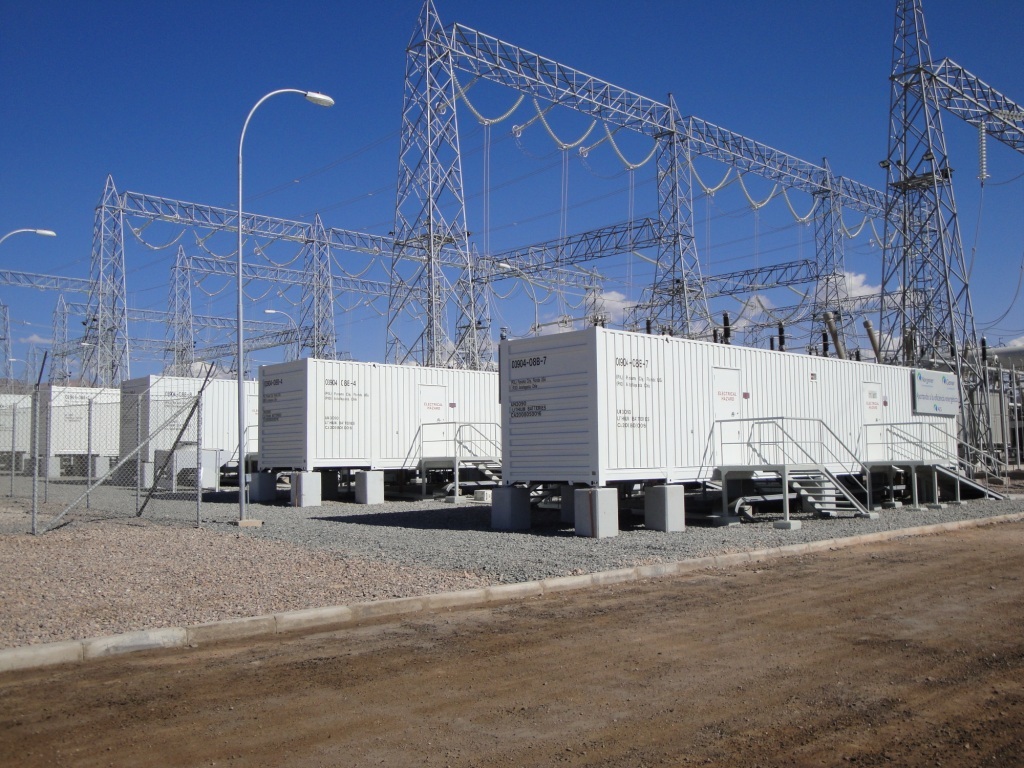
Exeger, the Swedish deep-tech company behind the revolutionary Powerfoyle solar cell technology, announces a partnership with Merry Electronics, a world-leading manufacturer of electroacoustic products. Together, they are developing a proof-of-concept headphone featuring enhanced battery life powered by ambient light, demonstrating how solar technology can extend device usage without traditional charging methods. Merry will unveil the innovative headphones at CES in January 2025, providing attendees with a first look at this self-charging solution, including a customized app that demonstrates light charging. This will allow users to experience how different light conditions extend the playtime.
Powerfoyle converts all types of light to generate a continuous flow of clean electricity, elevating the user-experience in one of two ways depending on the choice of the brand. One option, which has been most popular in product releases with Powerfoyle since 2021, is optimizing for battery life. Thanks to world-class energy output from Powerfoyle, users can have a hassle-free experience without needed to charge. The second option is to use the energy provided by Powerfoyle to add functionality. In this way, users experience the full potential of products while potentially not affecting the expected battery life of the product.
Merry's extensive experience in the acoustics industry, along with its broad network of brand partnerships, will facilitate the wider adoption of Powerfoyle technology within the audio segment. This collaboration enables brands to offer a reliable and environmentally friendly power source that harnesses all forms of light, whether indoors or outdoors. With versatile options in design, shape, and texture, Powerfoyle is seamlessly integrated for a premium-quality finished product.
“We are excited to partner with Merry and look forward to closely collaborating to bring sustainable, light-powered audio solutions to market,” says Georgios Foufas, Chief Commercial Officer at Exeger. “This partnership underscores Exeger’s dedication to advancing self-charging technology. With Merry’s expertise, we will provide brands with innovative solutions that eliminate the need for cords and enhance user convenience.”
Allen Huang, CEO of MERRY continues: “Collaborating with Exeger on this project marks an important milestone in our commitment to merging sustainability with advanced technology. Our strong background in consumer electronics, particularly in acoustics, aligns perfectly with Exeger’s cutting-edge Powerfoyle technology. Together we are focused on developing self-charging products that improve user experiences while advancing sustainability in the industry. We look forward to unveiling our first concept headphone at CES in January 2025.”
CES | https://www.ces.tech/
Exeger | https://www.exeger.com/
Merry Electronics | https://www.merry.com.tw/index.aspx?lang=US
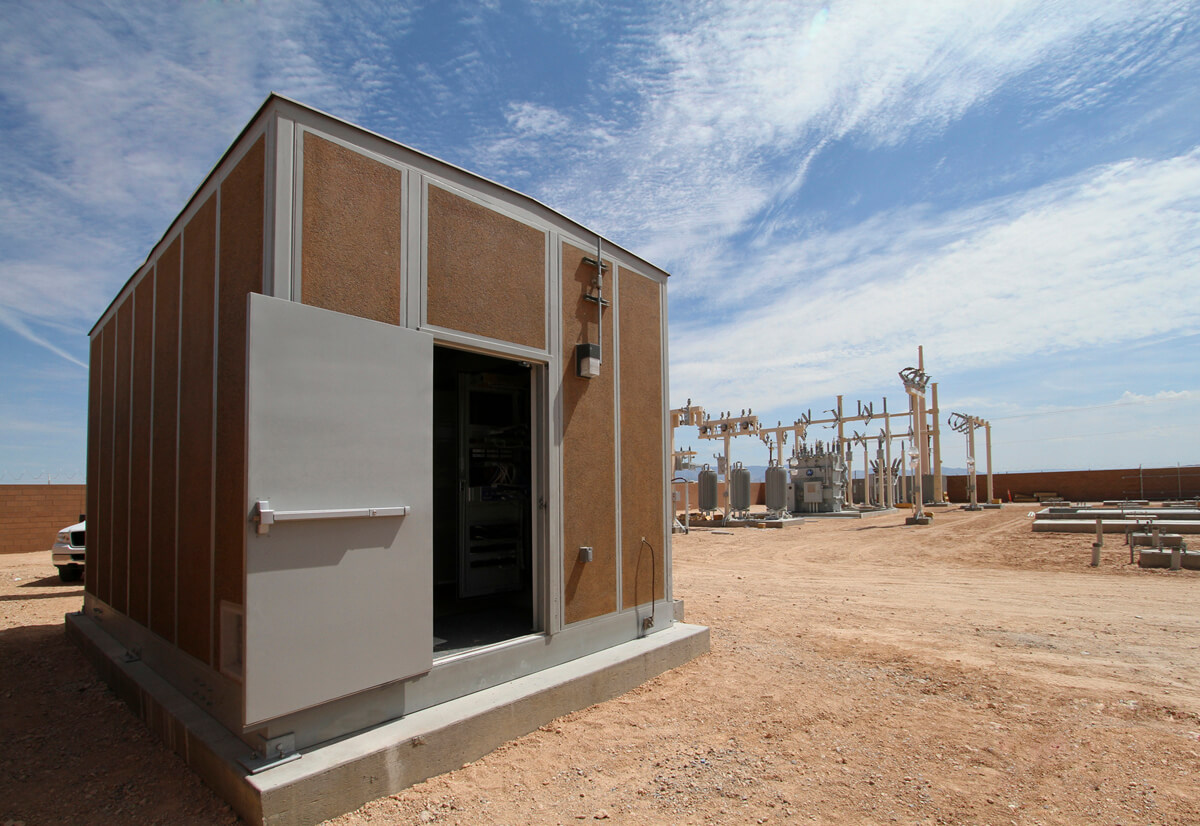
Intelligent power management company Eaton is demonstrating broad capabilities to keep the power on at home while helping minimize infrastructure upgrades to utility and home energy systems. The company’s AbleEdge home energy management system provides the foundational technology required to leverage any onsite distributed energy resource (DER) to power homes. Eaton is working with leading automotive original equipment manufacturers (OEMs), energy storage and solar providers to create interoperable and cost-effective approaches ready to support vehicle-to-home (V2H) and vehicle-to-grid (V2G) today and into the future.
The average U.S. home experiences about five and a half hours without electricity per year. V2H technology can bridge that gap, keeping the power on via use of an electric vehicle (EV) battery for 10 to 20 hours for most homes, depending on the season, battery capacity and home size. Eaton is uniquely positioned to accelerate V2H and V2G-ready solutions with its longtime experience and industry-leading solutions to safely manage power in homes, vehicles and on the grid. Already, Eaton has demonstrated its ability to support V2G programs with utilities and automotive OEMs.
“EV batteries present an enormous opportunity to enable home energy systems that work smarter, harder and more effectively — keeping the power on and reducing home energy costs,” said Paul Ryan, general manager of Connected Solutions and EV Charging at Eaton. “We’re delivering the breakout technology and industry collaborations needed so that homeowners can power their homes in new ways, while minimizing infrastructure investment and managing future updates through interoperability with onsite energy sources.”
Eaton is applying its Home as a Grid approach, which simplifies the energy transition and is designed for interoperability and cybersecurity to safely and effectively enable V2H. In North America, the AbleEdge home energy management system can pair EV batteries as well as solar and energy storage with residential electrical systems to provide power during grid outages and peak demand times. Eaton’s technologies streamline the process of incorporating DERs for homeowners by avoiding costly electric panel and service upgrades that can take weeks to complete – delivering significant cost and time savings. The company is expediting installations through its collaboration with Treehouse, which is providing consumers with fast, accurate pricing and end-to-end installation capabilities with licensed electricians.
Eaton is also facilitating power distribution and protection within electric vehicles by utilizing industry-leading technologies that safeguard and manage power, particularly during the charging process. Eaton recently announced its partnership with Munich Electrification to develop and market its battery configuration switch (BCS), which enables more flexibility in EV charging options, reduces equipment count and enhances performance.
The company is showcasing how its solutions support more resilient, sustainable and affordable power for homes, vehicles, buildings, factories, data centers and on the grid at CES 2025 in Las Vegas. Eaton experts will be speaking at conference panel sessions:
Eaton solutions can be experienced during CES 2025 at booth 10341 in the North Hall. Learn more about Eaton at CES 2025.
Eaton is also demonstrating its V2H capabilities at its Pittsburgh Experience Center, where visitors can interact with Eaton’s end-to-end electrical solutions across applications. Eaton Experience Centers provide real-world application environments for experiential learning where electrical contractors, automotive OEMs, utilities, builders and other industry professionals can see innovative technologies at work. Each year, thousands of industry partners, customers, students and media visit Eaton campuses to learn about the solutions powering energy systems everywhere. Learn more and visit Eaton Experience Centers.

The Canada Infrastructure Bank (CIB) is providing $224.2 million in loans to help Port Hawkesbury Paper Wind Ltd build a large-scale wind energy project and support 13 Mi'kmaw First Nations, through Wskijinu'k Mtmo'taqnuow Agency Ltd. (WMA), buy a 10 per cent stake in the project. The Goose Harbour Lake Wind Farm involves construction and installation of 24 Nordex N163-7.0MW cold climate turbines at a 118 metre hub height with anti-icing system blade technology, producing zero-emission, sustainable electricity generation capacity of 168 megawatts. The lead building team is RES Canada Construction LP.
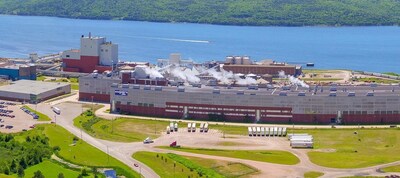
The Goose Harbour Lake Wind Farm involves construction and installation of 24 Nordex N163-7.0MW cold climate turbines at a 118 metre hub height with anti-icing system blade technology, producing zero-emission, sustainable electricity generation capacity of 168 megawatts. The lead building team is RES Canada Construction LP.
The wind project will support Nova Scotia's largest industrial user of electricity, Port Hawkesbury Paper and the provincial energy grid.
The paper mill is a significant contributor to the economic well-being of Nova Scotia, and particularly the eastern region of the province. Economic impact studies confirmed the mill directly employs approximately 325 people, and contracts another 900 jobs, employing hundreds of forestry contractors and suppliers.
The project will create 150 jobs at peak of construction, up to five permanent jobs during the operations phase and generate economic development for the region.
The Indigenous equity loan is the second to WMA, following a deal last year related to an energy storage project in Nova Scotia.
The wind farm is expected to reduce energy production emissions by more than 350,000 tonnes a year, equivalent to 2.4 per cent of Nova Scotia's emissions in 2021, and help the province's energy transition, moving from coal to renewables.
Commercial operations are expected to begin in 2026.
The project is being financed under the CIB's $10 billion Clean Power priority sector, which is dedicated to addressing financing gaps in new projects such as renewables, district energy systems and energy storage.
Endorsements
The Goose Harbour Lake Wind project supports Nova Scotia's transition to clean energy sources that will significantly reduce the province's carbon emissions. The CIB's investment and partnership with Port Hawkesbury Paper Wind Ltd., and Wskijinu'k Mtmo'taqnuow Agency Ltd. (WMA), will create more jobs and bring lasting economic benefits to the region.
Mike Kelloway, Parliamentary Secretary to the Minister of Fisheries and Oceans and the Canadian Coast Guard and Member of Parliament for Cape-Breton-Canso on behalf of the Honourable Nathaniel Erskine-Smith, Minister of Housing, Infrastructure and Communities
Our latest clean power investment in Nova Scotia supports sustainable economic development in the Atlantic province and the delivery of electricity to a paper mill which is a large Nova Scotia employer. The $203.9-million investment will help build one of Nova Scotia's largest wind energy projects and support all First Nations in the province to buy a meaningful equity stake and have a voice through a board position in the project.
Ehren Cory, CEO, Canada Infrastructure Bank
We are in the midst of an energy transition in Nova Scotia, shifting away from fossil fuels toward clean, sustainable renewable energy such as wind. We have a unique opportunity to harness this low-cost resource to increase our energy security, support our green economy, create green jobs, and help us meet our net-zero emissions goal. We applaud Port Hawkesbury Paper for their contribution to these efforts with the Goose Harbour Lake Wind Farm investment, as well as their continued commitment to a sustainable forest sector in Nova Scotia.
Trevor Boudreau, Nova Scotia Minister of Energy
Our investment in major projects like the Goose Harbour Lake Wind Farm, as well as continued capital upgrade projects and annual major maintenance programs are examples of where we want to grow and help the facility succeed for many years to come. We are excited and proud to be working with all our partners to advance this project which will not only contribute to our mission of making top quality competitive forest products, but at the same time be a great place to work and be an environmentally responsible and strong contributor to the province of Nova Scotia.
Ron Stern, President, PHP and PHPWind
Our partnership with Port Hawkesbury Paper Wind and the Canada Infrastructure Bank on the Goose Harbour Lake Wind project represents not just an investment in renewable energy, but also a significant step towards empowering our Mi'kmaq communities. By acquiring a stake in this groundbreaking initiative, we are not only contributing to Nova Scotia's transition to sustainable energy but also supporting industry, creating jobs and fostering economic development in our region. This project embodies our commitment to balancing environmental responsibility with community growth, ensuring a brighter future for generations to come.
Crystal Nicholas, President, Wskijinu'k Mtmo'taqnuow Agency Ltd.
We are immensely proud of Stonebridge Financial's role in arranging the construction, ITC bridge and long-term debt financing of the 168 MW Goose Harbour Lake Wind Farm. In partnership with PHP, WMA, and CIB, we successfully navigated financial complexities to ensure the project's successful execution. This collaboration highlights our ongoing commitment to renewable energy and our ability to facilitate innovative financing solutions that contribute to a sustainable future.
Cam Di Giorgio, Co-CEO, Stonebridge Financial Corporation
The Goose Harbour Windfarm is a model example of each level of government using tools in their toolbox to encourage industry to advance a renewable energy project that will have an incremental impact on reducing our NS carbon footprint. We are proud to support Port Hawkesbury Paper in their efforts to be more sustainable, and we're proud to have their project in the Municipality of the District of Guysborough. We all need to do our part in supporting projects that help to support the worldwide move to a more environmentally sound community for generations to come.
Paul Long, Warden Municipality of Guysborough
Canada Infrastructure Bank | https://cib-bic.ca/
Energy Storage Dec 28, 2024
2024 finally marked the return to a "normal" consumer auto market. After four years of turmoil, car buyers no longer face inventory shortages or long waits for their preferred vehicles. While many factors contributed to the auto market i....



As clean energy adoption continues to grow, the logistics of retrofitting existing buildings for solar energy have become an important topic for homeowners looking to reduce their carbon footprint and capitalize on financial incentives. Retrofitting,....
When you spend most of your time talking to farmers and folks in rural America, the biggest thing you’ll learn is this: It is harder than ever to be a farmer. In a business with already razor thin margins, equipment and supplies have significantly ....
Around 20-30 percent of solar installations are impacted by main panel limitations. NEC’s 120% rule often necessitates expensive main panel upgrades, potentially costing $2,000 to $5,000 or more with labor, permitting, and additional electrical wor....
Back in 2015, America planted the seeds ....
When the shift to clean and more renewab....
In the quest for sustainable energy, win....
Though battery storage for electric utilities has been the focus of much attention in recent years, the technology is not entirely new . Power generation and distribution companies have had access to battery energy storage systems for a long time. Ho....
2024 finally marked the return to a "normal" consumer auto market. After four years of turmoil, car buyers no longer face inventory shortages or long waits for their preferred vehicles. While many factors contributed to the auto market i....
Power grids are fundamental to the energy supply for commercial and residential electricity. There is growing energy demand around the world, and more renewable energy sources are being built all the time. Unfortunately, many existing grids and trans....
It’s a fact of life in industrial processing that in order to accomplish “good” things you must sometimes have to work with potentially “bad” things. Such is the case with liquid hydrogen, or LH2. As the industrial world continues to look f....
Transitioning away from a fossil fuel-based society will drastically increase demand for metals used in clean energy technologies. As a result, many of these metals, including nickel, cobalt, graphite, lithium, copper, and the rare earth elements (RE....
The renewable energy landscape is changing rapidly. Advances in technology are powering a green energy renaissance in general, and many alternative power sources are being enhanced, developed, and promoted. These breakthroughs can be anticipated to h....